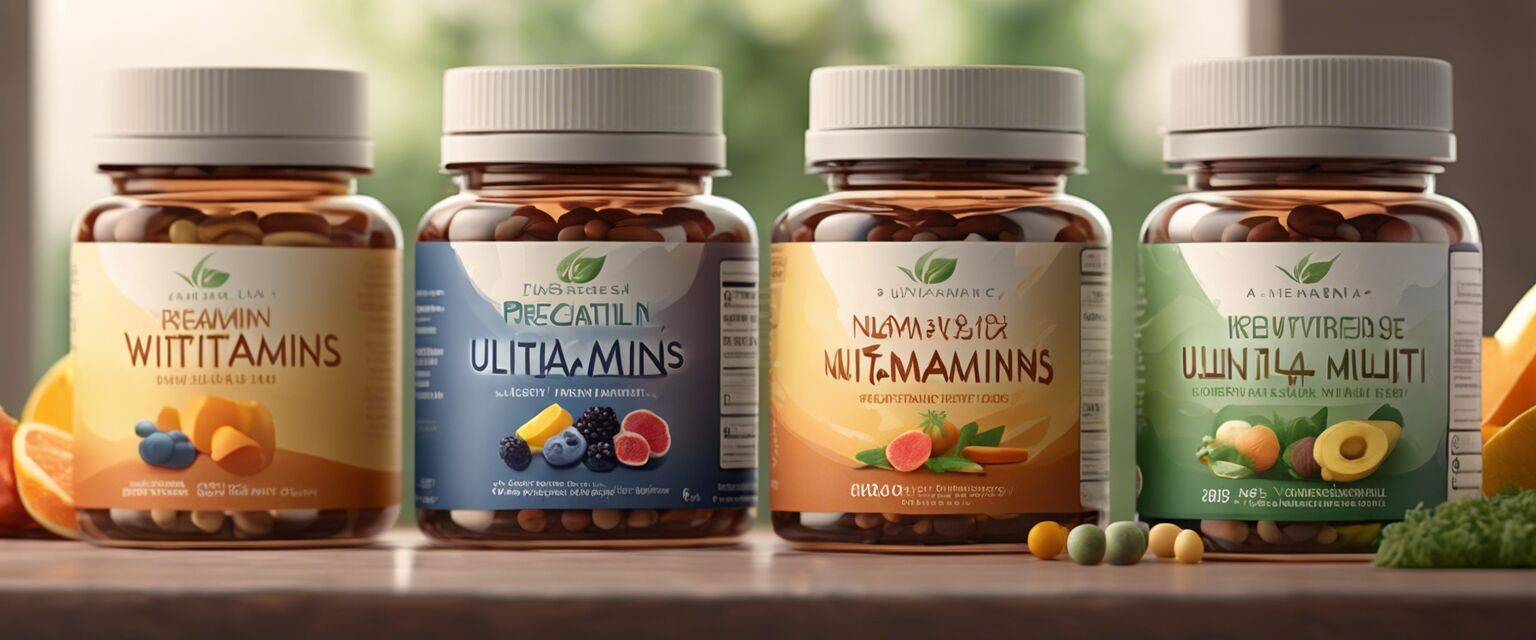
Benefits of Prenatal Vitamins
Key Takeaways
- Prenatal vitamins are essential for the health of both mother and baby.
- They fill nutritional gaps in the mother's diet.
- Key nutrients include folic acid, iron, calcium, and DHA.
- Consulting with a healthcare provider is advisable before starting any supplement.
Prenatal vitamins play a crucial role in a healthy pregnancy, offering valuable nutrients that support the development of the fetus and the well-being of the expectant mother. In this article, we will delve into the different benefits of these vital supplements and how they contribute to a healthy pregnancy.
What are Prenatal Vitamins?
Prenatal vitamins are specially formulated supplements that provide essential nutrients for expecting mothers. They are designed to support both the nutritional needs of the mother and the healthy development of her baby.
Why are Prenatal Vitamins Important?
During pregnancy, a woman's body goes through numerous changes and increased nutritional demands. Prenatal vitamins help meet these demands by ensuring pregnant women get the necessary vitamins and minerals.
Key Nutrients in Prenatal Vitamins
| Nutrient | Benefit |
|---|---|
| Folic Acid | Helps prevent neural tube defects in the developing baby. |
| Iron | Supports increased blood volume and helps prevent anemia. |
| Calcium | Essential for the development of the baby's bones and teeth. |
| DHA | Contributes to brain and eye development in the fetus. |
The Benefits of Prenatal Vitamins
1. Supporting Fetal Development
The nutrients provided by prenatal vitamins are critical for the healthy development of the fetus. Particularly, folic acid is vital for neural development and can help prevent serious birth defects.
2. Enhancing Maternal Health
Prenatal vitamins not only benefit the fetus but also support the overall health of the mother. The increased blood volume during pregnancy requires additional iron, which prenatal vitamins can help supply.
3. Filling Nutritional Gaps
Many expectant mothers may struggle to get all the necessary nutrients from their diet alone. Prenatal vitamins serve as a safety net, providing essential vitamins and minerals that may be lacking.
4. Promoting Healthy Weight Gain
Proper nutrition helps to promote healthy weight gain during pregnancy, which is important for the health of both the mother and baby.
5. Supporting Emotional Well-being
Maintaining a balanced nutrient intake during pregnancy may support emotional well-being, which can sometimes be affected by hormonal changes.
Types of Prenatal Vitamins Available
There are several categories of prenatal vitamins available, each designed to meet specific dietary preferences and needs.
| Type | Description |
|---|---|
| Certified Gluten-Free Vitamins | Perfect for individuals with gluten intolerance. |
| Chewable Prenatal Vitamins | Easy to digest and consume for those who have trouble swallowing pills. |
| DHA Prenatal Supplements | Focus on providing DHA which is critical for brain development. |
| Essential Prenatal Multivitamins | Offers a complete blend of nutrients to support overall health. |
| Organic Prenatal Vitamins | Made from organic ingredients for those looking for natural options. |
| Subscription-Based Vitamin Services | Convenient delivery of vitamins tailored to individual needs. |
| Vegan Prenatal Multivitamins | Formulated without animal products for vegan diets. |
Choosing the Right Prenatal Vitamin
With so many options available, choosing the right prenatal vitamin can be overwhelming. Here are a few tips to consider:
Tips for Beginners
- Consult with a healthcare provider to identify specific nutritional needs.
- Look for vitamins that contain folic acid, iron, calcium, and DHA.
- Check for third-party testing to ensure quality and safety.
- Consider dietary restrictions when selecting vitaminsâopt for vegan or gluten-free if needed.
When to Start Taking Prenatal Vitamins
It is generally recommended that women start taking prenatal vitamins at least three months before conception and continue through the pregnancy and breastfeeding period.
Potential Side Effects of Prenatal Vitamins
Although prenatal vitamins are beneficial, some individuals may experience side effects such as nausea or constipation. It's important to choose a vitamin that suits your digestive system, or reduce the dosage if you encounter issues.
Pros
- Provides essential nutrients needed for pregnancy.
- Supports both maternal and fetal health.
- Helps fill dietary gaps for many women.
- Available in various forms tailored to individual needs.
Cons
- Some women may experience mild side effects.
- Variety may lead to confusion in selection.
- Can be an additional expense to consider during pregnancy.
Conclusion
Prenatal vitamins are an essential part of a healthy pregnancy, providing crucial nutrients that benefit both mother and baby. It is important to choose the right prenatal vitamin that meets your individual needs, and always consult a healthcare provider before starting any new supplement.
Learn More
For more information on specific types of prenatal vitamins, check out our related articles on Certified Gluten-Free Vitamins, Chewable Prenatal Vitamins, and Essential Prenatal Multivitamins.
Images to Illustrate










